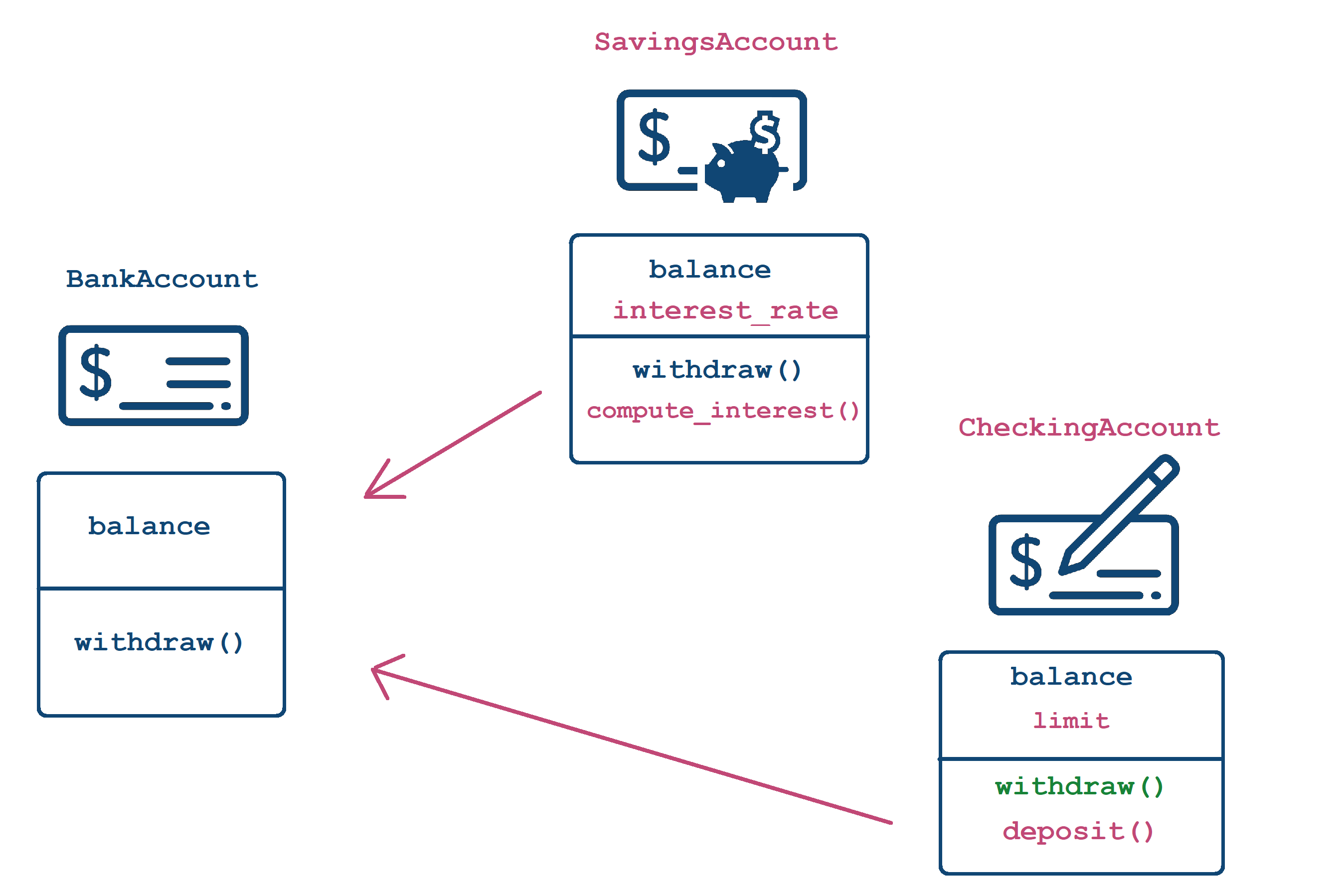Customizing functionality via inheritance
Object-Oriented Programming in Python

Alex Yarosh
Content Quality Analyst @ DataCamp

What we have so far
class BankAccount:
def __init__(self, balance):
self.balance = balance
def withdraw(self, amount):
self.balance -=amount
# Empty class inherited from BankAccount
class SavingsAccount(BankAccount):
pass
Customizing constructors
class SavingsAccount(BankAccount): # Constructor specifically for SavingsAccount with an additional parameter def __init__(self, balance, interest_rate):# Call the parent constructor using ClassName.__init__() BankAccount.__init__(self, balance) # <--- self is a SavingsAccount but also a BankAccount# Add more functionality self.interest_rate = interest_rate
- Can run constructor of the parent class first by
Parent.__init__(self, args...) - Add more functionality
- Don't have to call the parent constructors
Create objects with a customized constructor
# Construct the object using the new constructor
acct = SavingsAccount(1000, 0.03)
acct.interest_rate
0.03
Adding functionality
- Add methods as usual
- Can use the data from both the parent and the child class
class SavingsAccount(BankAccount):
def __init__(self, balance, interest_rate):
BankAccount.__init__(self, balance)
self.interest_rate = interest_rate
# New functionality
def compute_interest(self, n_periods = 1):
return self.balance * ( (1 + self.interest_rate) ** n_periods - 1)

Customizing functionality
class CheckingAccount(BankAccount):def __init__(self, balance, limit): BankAccount.__init__(self, balance) self.limit = limitdef deposit(self, amount): self.balance += amountdef withdraw(self, amount, fee=0):if fee <= self.limit: BankAccount.withdraw(self, amount + fee) else: BankAccount.withdraw(self, amount + self.limit)
- Can change the signature (add parameters)
- Use
Parent.method(self, args...)to call a method from the parent class
check_acct = CheckingAccount(1000, 25)
# Will call withdraw from CheckingAccount
check_acct.withdraw(200)
# Will call withdraw from CheckingAccount
check_acct.withdraw(200, fee=15)
bank_acct = BankAccount(1000)
# Will call withdraw from BankAccount
bank_acct.withdraw(200)
# Will produce an error
bank_acct.withdraw(200, fee=15)
TypeError: withdraw() got an unexpected
keyword argument 'fee'
Let's practice!
Object-Oriented Programming in Python

